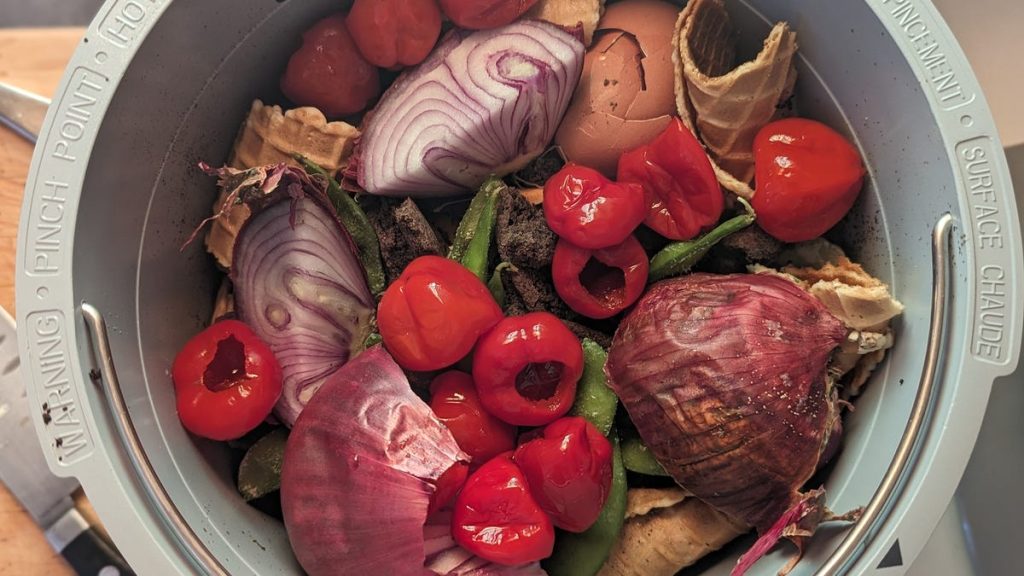The narrator starts by describing the food waste they generated in a week, including lettuce, tomatoes, broccoli, bread, onion, and jarred goods. Previously, this waste would have ended up in the trash, contributing to methane emissions in landfills. However, they now use a new Lomi Bloom countertop food recycler to turn the waste into plant fertilizer. Food waste is a significant contributor to greenhouse gas emissions, making it important to find sustainable ways to dispose of it. The countertop composter reduces the waste by about 85%, transforming it into material suitable for plants or gardens.
The narrator explores how much food waste they generate in a week and how owning a countertop composter like the Lomi can help reduce this waste. They weigh and track every bit of food scraps they produce, which primarily consists of fruits and vegetables, eggshells, peels, and coffee grounds. The Lomi Bloom is used multiple times during the week, processing 91.2 ounces of food waste, down to 20 ounces after composting. This experiment highlights the potential impact of owning a countertop food recycler on reducing overall food waste.
Owning a countertop food recycler is found to be beneficial by the narrator, who regrets not getting one sooner. While the primary benefit for urban dwellers may not be the availability of usable soil, the feel-good factor of offsetting waste and reducing the need for plastic garbage bags is significant. Concerns about noise, smell, and space are not an issue, even in a small apartment. Smart kitchen bins, food recyclers, and composters for home use may be pricey, but the value of addressing personal food waste and taking action to prevent it is invaluable.
The impact of food waste on the environment is highlighted, with the EPA stating that it accounts for nearly 60% of greenhouse gas emissions from landfills. Those without access to composting programs or green spaces may benefit from countertop composters. The narrative challenges the belief that food waste is harmless due to its biodegradability, emphasizing the importance of responsible waste management practices. Using a countertop composter like the Lomi can significantly reduce the amount of food waste generated and contribute to a more sustainable lifestyle.
The narrator details their personal experience of using the Lomi Bloom countertop food recycler for a week, showcasing how much waste it processed and the resulting reduction in volume. They highlight the economic and environmental benefits of owning a smart kitchen bin or composting system, emphasizing the value of taking proactive steps to address food waste. By converting food scraps into plant fertilizer, individuals can make a tangible impact on reducing greenhouse gas emissions and promoting sustainable practices in their daily lives.
Overall, the story emphasizes the importance of responsible waste management, particularly with regards to food waste, and the role that countertop composters can play in mitigating environmental impact. By exploring their own food waste generation and the benefits of owning a countertop food recycler, the narrator encourages readers to consider sustainable solutions for managing their waste. The Lomi Bloom countertop composter serves as a practical example of how individuals can contribute to reducing their carbon footprint and fostering a more environmentally friendly lifestyle.


